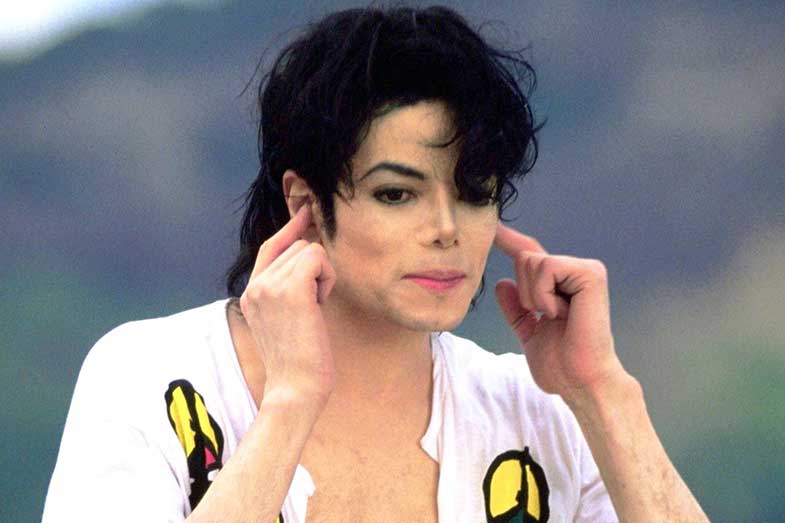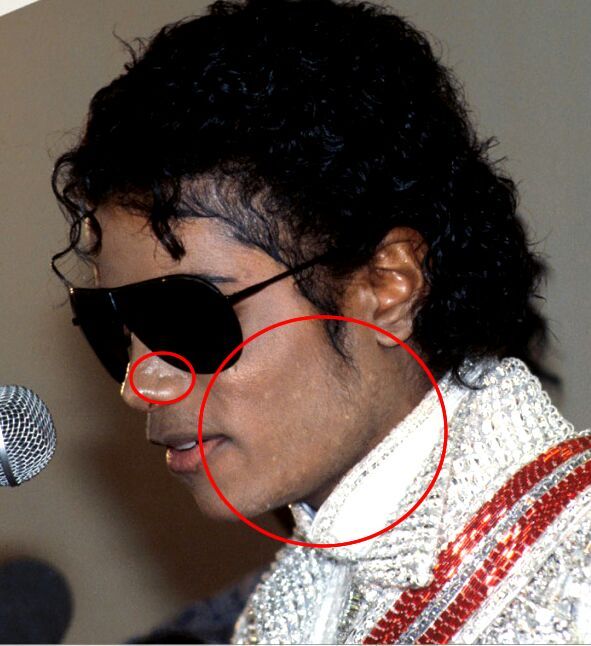When we talk about Michael Jackson, it's impossible not to mention his incredible journey in music and entertainment. But beyond the music and fame lies a personal battle that many may not fully understand—his struggle with vitiligo. This condition played a significant role in shaping his life, public image, and even his artistic expression. In this article, we'll dive deep into the world of Michael Jackson's vitiligo, exploring its effects on his life, the misconceptions surrounding it, and how he managed to rise above it all.
As one of the most iconic figures in pop culture, Michael Jackson's life was under constant scrutiny. Every move he made was analyzed, every change in his appearance questioned. However, few people truly understood the medical reasons behind those changes. Vitiligo, a skin condition that causes loss of pigmentation, became a defining part of his story. This article aims to shed light on this often misunderstood condition and its impact on the King of Pop.
We'll take you through a comprehensive journey, breaking down the science behind vitiligo, exploring Michael's personal experiences, and debunking common myths. Whether you're a fan or simply curious about this aspect of his life, this article will provide you with valuable insights. So, let's get started!
Read also:Alexis Real Housewives The Ultimate Guide To Her Glamorous Life And Career
Table of Contents
- Michael Jackson's Biography
- What is Vitiligo?
- Michael Jackson's Vitiligo Diagnosis
- Impact on His Life and Career
- Debunking the Myths
- Treatment and Management
- Cosmetic Changes
- Public Perception and Media
- Support System and Coping Mechanisms
- Legacy and Lessons Learned
Michael Jackson's Biography
Data and Facts About Michael Jackson
| Full Name | Michael Joseph Jackson |
|---|---|
| Birth Date | August 29, 1958 |
| Birth Place | Gary, Indiana, USA |
| Occupation | Singer, Songwriter, Dancer, Philanthropist |
| Known For | Being the "King of Pop," hits like "Thriller," "Billie Jean," and "Bad" |
| Height | 5'9" (175 cm) |
Michael Jackson, born on August 29, 1958, in Gary, Indiana, was more than just a musician. He was a global icon who redefined pop music and entertainment. Rising to fame with the Jackson 5, he later embarked on a solo career that would cement his legacy as the "King of Pop." With hits like "Thriller," "Billie Jean," and "Bad," Michael became a household name worldwide.
His life, however, was not without challenges. From a young age, he faced intense media scrutiny and personal struggles. One of the most significant challenges he encountered was his diagnosis with vitiligo, a condition that would change the course of his life and public image.
What is Vitiligo?
Vitiligo is a long-term skin condition characterized by patches of the skin losing their pigment. The exact cause remains unknown, but it's believed to be an autoimmune disorder where the body's immune system mistakenly attacks and destroys the cells responsible for pigmentation, known as melanocytes.
While it doesn't pose any physical health risks, vitiligo can have profound psychological effects. People with this condition often face stigma and discrimination, which can lead to anxiety, depression, and low self-esteem. Understanding the nature of vitiligo is crucial in appreciating the challenges Michael Jackson faced.
Types of Vitiligo
- Generalized Vitiligo: The most common type, affecting both sides of the body symmetrically.
- Segmental Vitiligo: Limited to one side or part of the body.
- Localized Vitiligo: Affects a single area or patch of skin.
Michael Jackson's Vitiligo Diagnosis
Michael Jackson was diagnosed with vitiligo in the early 1980s. Initially, he kept it private, but as the condition progressed, it became more noticeable. The loss of pigmentation, especially on his face and hands, drew significant attention from the media and the public.
In 1993, during a press conference, Michael publicly acknowledged his condition. He explained how vitiligo had affected his appearance and why he had undergone skin treatments. This revelation aimed to dispel rumors and provide clarity to his fans and critics alike.
Read also:Did Prince Charles Have An Affair Unveiling The Truth Behind The Royal Scandal
Symptoms and Progression
The symptoms of vitiligo in Michael Jackson included:
- Patches of depigmented skin on his face, hands, and other areas.
- Increase in the size and number of patches over time.
- Sensitivity to sunlight due to the lack of melanin.
Impact on His Life and Career
Living with vitiligo significantly impacted Michael Jackson's life and career. The condition forced him to adapt his public image and lifestyle. He began wearing iconic gloves, hats, and sunglasses to protect his skin from the sun and to maintain a sense of privacy.
His music and performances also reflected his experiences with vitiligo. Songs like "Man in the Mirror" and "Black or White" can be seen as expressions of his internal struggles and desire for acceptance and unity.
Career Adjustments
- Adopted a more protective wardrobe on stage and during public appearances.
- Increased focus on charitable work and advocacy for skin conditions.
- Used music as a platform to address issues of race, identity, and acceptance.
Debunking the Myths
Over the years, numerous myths and misconceptions about Michael Jackson's vitiligo have circulated. Let's address some of the most common ones:
- Myth: Michael Jackson underwent multiple surgeries to change his race.
Fact: His changes in appearance were primarily due to vitiligo and treatments aimed at managing the condition. - Myth: He was trying to hide something by wearing gloves and hats.
Fact: These accessories were necessary to protect his sensitive skin from UV rays.
Why the Myths Persist
The media's fascination with Michael Jackson's life often led to exaggerations and misinformation. His reclusive nature and the dramatic changes in his appearance fueled speculation. However, understanding the science behind vitiligo helps dispel these myths and provides a clearer picture of his reality.
Treatment and Management
Treating vitiligo involves various approaches, including topical medications, light therapy, and in some cases, surgery. Michael Jackson reportedly underwent several treatments to manage his condition:
- Topical corticosteroids to restore pigmentation.
- PUVA therapy, which combines medication with light exposure.
- Skin grafting procedures to cover depigmented areas.
While these treatments can improve the appearance of vitiligo, they require patience and persistence. Michael's dedication to managing his condition reflects his resilience and determination.
Cosmetic Changes
Beyond medical treatments, Michael Jackson made several cosmetic changes to adapt to his evolving appearance. These changes were not about hiding his condition but rather about embracing it and maintaining his confidence.
He adopted a lighter skin tone, which was a result of depigmentation treatments and his decision to embrace a uniform complexion. This choice was often misunderstood but was a personal decision that aligned with his comfort and self-expression.
Public Perception and Media
The media played a significant role in shaping public perception of Michael Jackson's vitiligo. Sensational headlines and misleading stories contributed to misunderstandings about his condition. However, as awareness about vitiligo increased, so did understanding and empathy from the public.
Michael's openness about his diagnosis helped reduce stigma and encouraged others with similar conditions to speak out. His story became a powerful narrative of acceptance and perseverance.
Support System and Coping Mechanisms
Michael Jackson had a strong support system, including family, friends, and medical professionals, who helped him cope with vitiligo. His faith and philanthropic work also provided emotional solace and purpose.
Engaging in activities that brought him joy and fulfillment, such as performing and helping others, allowed him to rise above the challenges posed by vitiligo. His ability to channel his experiences into art and advocacy remains a testament to his strength and character.
Legacy and Lessons Learned
Michael Jackson's journey with vitiligo offers valuable lessons about acceptance, resilience, and the power of self-expression. He taught us that true beauty lies in embracing our uniqueness and overcoming adversity with grace.
As we reflect on his legacy, let's remember the importance of understanding and supporting those with skin conditions like vitiligo. By fostering empathy and awareness, we can create a more inclusive and compassionate world.
So, next time you listen to "Man in the Mirror" or watch one of his iconic performances, think about the man behind the music and the battles he fought. Let's honor his memory by continuing the conversation and promoting acceptance for all.
Call to Action
Share this article with your friends and family to spread awareness about vitiligo and Michael Jackson's inspiring story. Leave a comment below sharing your thoughts or experiences. And don't forget to explore more articles on our site for in-depth insights into various topics.
Together, let's keep the conversation going and make a difference in the world!


